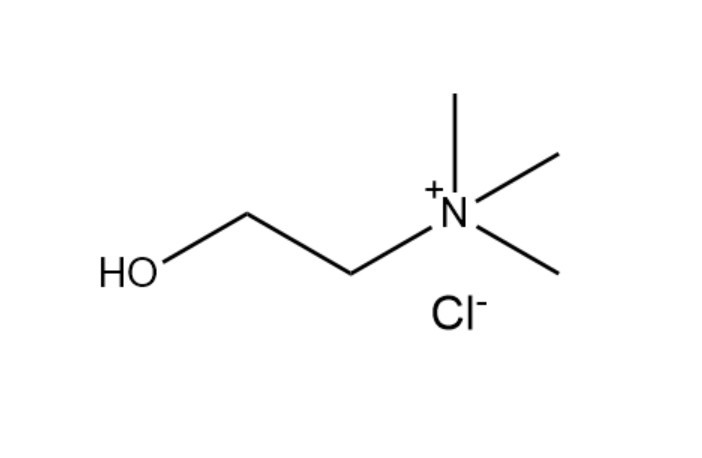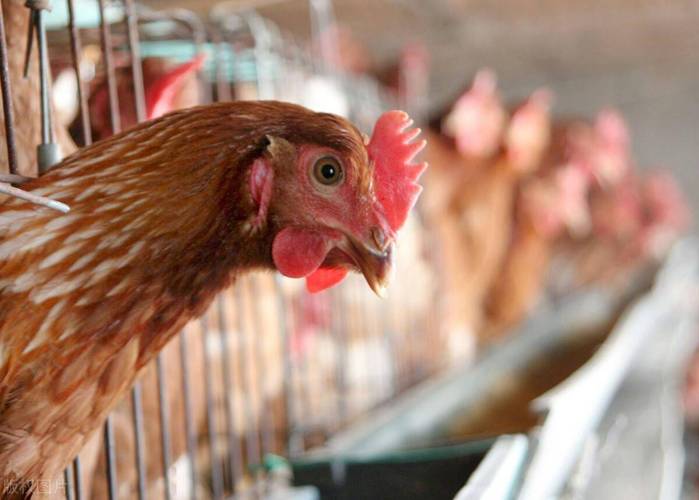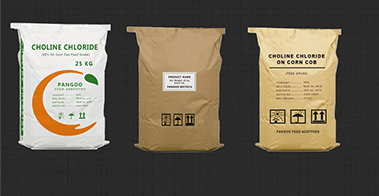
Choline chloride is an essential component utilized as an animal feed ingredient and a nutritional supplement. It is a source of choline necessary for the healthy operation of an animal's muscles, liver, and brain. Young animals' growing neural systems require choline chloride as well. This blog post will examine the numerous applications of choline chloride in animals and go through safe and efficient administration methods. The security and control of choline chloride for animals will also be covered. Also, cover the security and control of choline chloride for animals.

The group of quaternary ammonium compounds includes choline chloride, a chemical molecule. It is typically generated by mixing trimethylamine and hydrochloric acid and has the chemical formula C5H14ClNO. Egg yolks, liver, and wheat germ naturally contain choline chloride, but they may also be made in a lab.
Animals can benefit greatly from choline chloride, an important vitamin. It is essential for developing the neurological system in young animals and plays a critical part in sustaining liver function. Additionally necessary for healthy muscle development and maintenance, choline chloride can increase livestock feed efficiency. Overall, choline chloride is a crucial nutrient for animals' health and welfare.

There are several uses of choline chloride in animals. Some of the most common applications include:
Animals' livers need choline chloride to operate properly. It is essential for lipid synthesis and fat metabolism, and it helps maintain liver function and guard against liver damage.
Young animals' neural systems need choline chloride to develop properly. It participates in the neurotransmitter acetylcholine production, which is crucial for memory and learning.
Choline chloride is necessary for animals' muscles to develop and remain in good condition. It is involved in the production of creatine, a substance essential for muscle energy metabolism.
Livestock can more successfully convert their feed into body mass with choline chloride, which can also help humans. This may result in increased productivity and growth and cost savings for farmers and ranchers.
These are a few examples of how choline chloride is used in animals. It is a useful and significant nutrient essential to animals' health and welfare.

Animals can be given choline chloride in several ways. Among the most popular techniques are:
Choline chloride can be supplemented into animal feed. It is frequently present in commercial foods for animals, birds, and pets.
Animals can also receive choline chloride through their drinking water after it has been dissolved. This is frequently done for pigs and poultry.
Choline chloride can be given to animals as a pill, powder, or liquid supplement and is readily obtainable in this manner. This is frequently done for dogs or animals whose diets are deficient in choline chloride.
When administering choline chloride to animals, it's critical to adhere to the suggested dosage and administration instructions. A big overdose can harm animals and cause negative side effects like vomiting and diarrhea. For advice on the proper dosage and administration of choline chloride for your particular animal, speak with a trained animal nutritionist or veterinarian.
An important concern is the safety of choline chloride for animal use. Even though choline chloride is typically considered harmless when taken properly, excessive amounts can be hazardous to animals. The signs of choline chloride intoxication can include vomiting, diarrhea, trembling, and breathing difficulties. To ensure your animals' safety, it's crucial to adhere to the dosage and administration recommendations.
When utilizing choline chloride in animals, regulatory guidelines must be observed in addition to worries about toxicity. Purity, safety, and labeling standards are among these specifications, albeit they can differ based on the precise product and intended purpose. To ensure that their goods can be legally sold, producers and consumers of choline chloride for animals must adhere to certain specifications.
Overall, choline chloride is a crucial and adaptable nutrient with several critical applications in animals. When used as intended, it is typically safe, but it is crucial to adhere to the suggested dose and administration instructions and any applicable regulatory requirements. You may contribute by doing this to ensure the security and welfare of your pets.
If you are looking for a sustainable choline chloride manufacturer, I recommend you choose Pangoo Biotech.
We are a leading manufacturer of choline chloride based in China.
At Pangoo, we are dedicated to creating high-quality choline chloride products that adhere to the strictest standards for purity, safety, and efficacy. Modern technologies and methods at our state-of-the-art production facilities enable us to consistently manufacture high-quality goods that satisfy the demands of our clients.
We are dedicated to providing top-notch service and support and are delighted to serve clients worldwide. We appreciate your interest in working with Pangoo to produce choline chloride.